Ukraine leader gets support in U.S., but not lethal aid
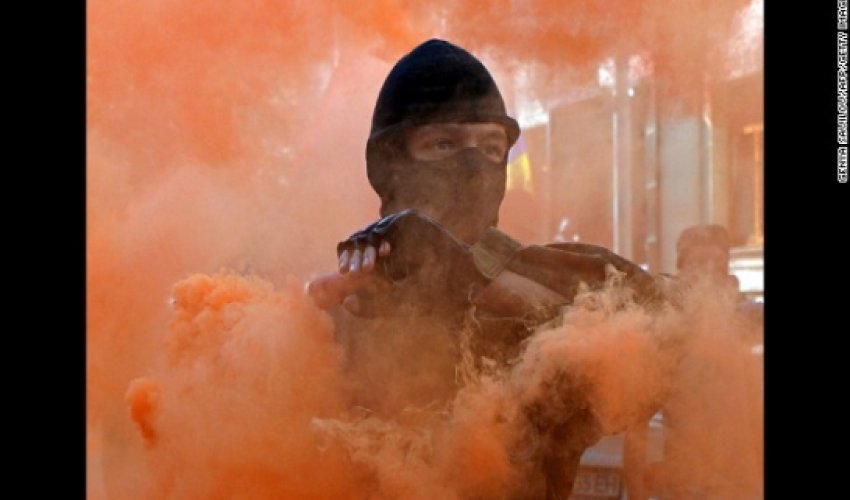
American leaders offered Ukrainian President Petro Poroshenko a high-profile platform Thursday to advocate for greater support to his besieged military, though the levels of assistance ultimately offered by the United States fell short of his requests.
After an address to a joint session of Congress, Poroshenko met with Secretary of State John Kerry and later with President Barack Obama in the Oval Office, where he requested help arming his troops to battle Russian separatists in eastern Ukraine -- a request that once again was rebuffed.
"They need more military equipment, both lethal and nonlethal," Poroshenko said of his military during his morning speech to U.S. lawmakers, saying Ukraine deserved special ally status that qualifies it for elevated levels of assistance.
Speaking in accented English, Poroshenko said during his emotional remarks that "blankets, night vision goggles are also important" in fighting
Russian-backed troops but "one cannot win the war with blankets."
As soon as Poroshenko completed his remarks, the White House announced $46 million in security assistance to Ukraine that omitted any lethal aid.
The package includes body armor, helmets, vehicles and night vision goggles.
Speaking to CNN's Wolf Blitzer following his meeting with Obama, Poroshenko said he was "fully satisfied" with the package offered from the United States.
Poroshenko philosophical after meetings
"We received more than we asked," he said, conceding later that Obama did not agree to the special ally status that would have led to greater levels of financial assistance to Ukraine.
American officials hoped images of the stars-and-stripes welcome for Poroshenko would make their way to the Kremlin, demonstrating to Russian
President Vladimir Putin unwavering U.S. commitment to Ukraine's new leader in his attempts to battle separatists backed by Moscow.
Obama, speaking immediately following his Oval Office session with Poroshenko, said "the people of America stand with the people of Ukraine" and called the Ukrainian president a personal friend.
Earlier, Obama's spokesman said the picture of Poroshenko in the Oval Office "would be worth at least a thousand words, both in English and in Russian I think."
Russia's incursion into Ukraine has spurred rounds and rounds of economic sanctions from the United States and Europe, which have so far failed to get Putin to stop troop movements in the border regions.
Obama and other U.S. officials insist the measures have crippled Russia's economy and made life hard for top aides to Putin, but some Ukrainian officials -- as well as some U.S. lawmakers -- say stronger measures like lethal aid are necessary to reverse the troop movements.
After Poroshenko's speech to Congress, legislators on the Senate Foreign Relations panel voted unanimously to advance a bipartisan package of new aid to Ukraine that includes both military and non-military assistance to the country. The measure allocates $350 million for the effort.
The Senate measure would include sending weapons and equipment to Ukraine's military to help defend against Russian troops, a move that thus far hasn't gained support from the White House.
Assistance, but with an eye on current tensions
Some analysts and officials worry sending ramped-up military aide to Ukraine's military could further escalate tensions with Russia, and argue the
ceasefire agreed to by both sides earlier this month needs time to solidify.
That accord has been violated several times since its inception on September 5, including shelling incidents this week that killed civilians. The White
House on Wednesday called the ceasefire agreement "tenuous."
"When it comes to the Western support, obviously Ukraine expects more. Ukraine, I think, even deserves more," said Balázs Jarábik, a scholar at the Carnegie Endowment for International Peace. "What is on the table now is very, very little."
In the past days, lawmakers and the White House have been wrestling with a strategy against Islamic State terrorists taking over swaths of Iraq and
Syria, allowing for little discussion of Ukraine. In a CNN poll out Thursday, public concern over Russia's actions remained high, though the percentage of Americans who say they're concerned about the situation in Ukraine has fallen slightly.
In Ukraine, lawmakers on Tuesday passed legislation giving "special status" to rebel-controlled areas in the eastern Luhansk and Donetsk regions.
The measure grants amnesty to the separatists -- but only if they disarm, release hostages and give up occupied buildings. The new law also provides protections for Russian-language speakers in the region.
At the same time, the Ukrainian Parliament and the European Union ratified a political and economic agreement that also includes free trade provisions, though they won't come into force until the start of 2016.
Former Ukrainian President Viktor Yanukovych's decision to drop the EU Association agreement late last year in favor of closer ties with Moscow triggered the popular unrest that led to his ouster in February, followed by Russia's annexation of Ukraine's Crimea region a month later and the deadly conflict in eastern Ukraine.
Moscow is opposed to Ukraine's pivot toward the West, which has been pushed forward Poroshenko, a billionaire who earned his fortune building a chocolate empire. He was elected president in May and inaugurated in June.
Poroshenko, who has received the public backing of NATO, the European Union and the United States, was in Canada on Wednesday to address
lawmakers there. Canada has joined the United States and European Union in imposing sanctions against Russian interests over Russia's intervention in Ukraine.
NATO and the United States accuse Russia of arming and training the pro-Russia rebels in Ukraine and sending Russian troops over the border to fight alongside them. Moscow denies these allegations.
The cease-fire deal was reached at three-party talks in Minsk, Belarus, on September 5 following a phone conversation between Poroshenko and Russian President Vladimir Putin. Representatives of Ukraine, the rebels and Russia were in Minsk for the talks.
(CNN)
Bakudaily.Az
Latest news 
More news 
























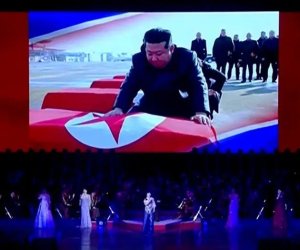
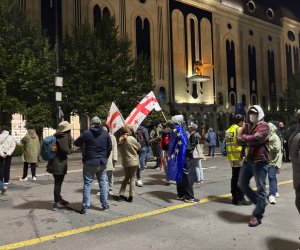
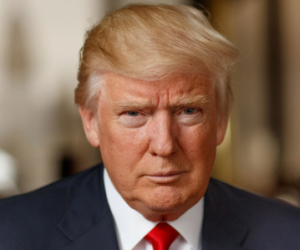
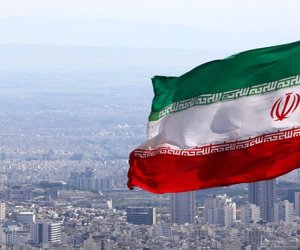
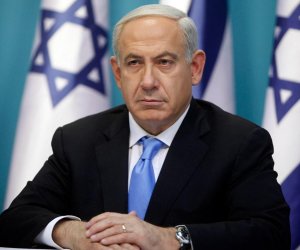
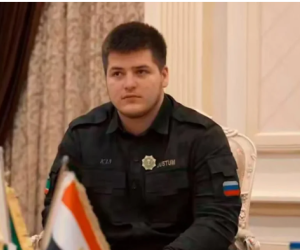
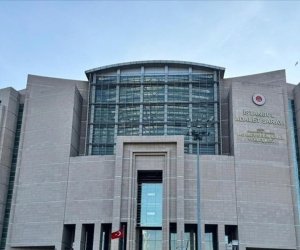
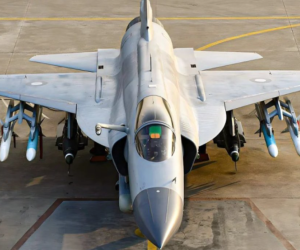
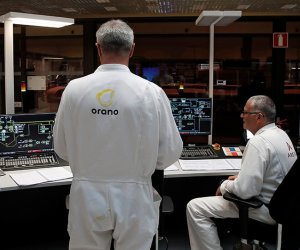


 Photo
Photo 



 Video
Video 

